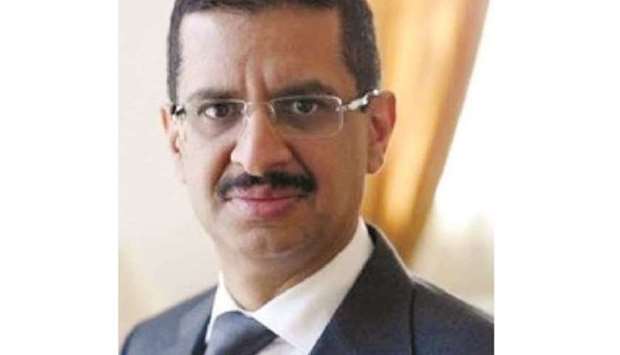HE the Director of the Department of Policy and Planning at the Ministry of Foreign Affairs Ambassador Dr Khalid bin Fahad al-Khater, has said there is a remarkable and sustainable development in relations between Qatar and the United States, which in turn contributed to enhancing the strategic, defence, security and economic priorities in the Gulf region and the Middle East.
Whilst participating through video conference technology in a dialogue on preserving the strategic presence of the United States in the Gulf organised by the “American Security Project” on the occasion of the launch of the report on the state of strategic co-operation of the United States of America in the Gulf region, al-Khater pointed out that the American presence cannot be separated from the development of sound and strong American policies in the region, and Qatar is considered important because its general approach to foreign policy is futuristic, and it realises that the region cannot move forward without adopting an approach based on a broader approach to the region that seeks to achieve a shared and responsible future.
He pointed out that the US’s close relations with Qatar will contribute to achieving common regional goals through an approach based on balance, co-operation and sustainability.
He explained that the launch of the Qatari and US strategic dialogue in January 2018, and other subsequent annual dialogues, established an important mechanism to strengthen bilateral ties.
Al-Khater indicated that the issue of the American strategic presence in the Gulf and elsewhere in the Middle East is an issue that provokes many points of view, pointing out that there is a common perception that the Gulf region is still the heart of the Middle East.
He felt the Gulf countries were not only important in the energy sector, but they also played a pivotal role in shaping investment decisions around the world as well as their contributing to maintaining the security of the region.
He added that the Gulf states have had an increasing impact on the broader dynamics of the Middle East, at times this was in terms of humanitarian and development aid, and at other times due to security factors, but there are challenges that disturb security, weakening regional unity and leading to security crises and conflicts.
He added that for most experts, the logic of national security means that US-Gulf relations may witness periods of expansion followed by recession, but in any case, America will not completely separate from the region.
He indicated that contrary to the perception about a reduced American role, the Biden administration took early care of Gulf security as a priority on its agenda, including Iran’s return to compliance and the US recommitment to the 2015 nuclear deal.
Since the escalation of tensions last year between the US and Iran in the Gulf, Qatar has contributed to pushing towards de-escalation in order to achieve stability, he noted.
Given that the Joint Comprehensive Plan of Action (JCPOA) needs all support, Qatar supports regional efforts to initiate confidence-building measures, restore dialogue and rebuild confidence between Iran and the Arab Gulf states, however, there are parallel Gulf issues, including strengthening the unity of the Gulf Co-operation Council and other issues such as Yemen and Iraq, as well as Syria, Libya and the Israeli-Palestinian conflict, he observed.
Al-Khater referred to the cessation of the recent Israeli aggression against the Palestinian people as an example of the effective role that a country such as Qatar plays in maintaining stability and providing humanitarian and development assistance to achieve security and stability.
He said that the recent Israeli attacks on Gaza had drawn the world’s attention to the bitter truth and that is, for more than 14 years, Israel has imposed a land, air and sea blockade on Gaza’s two million people.
He pointed out that the crisis contributed to shedding light on the problems of Israeli policies in East Jerusalem, not only in terms of restricting the rights of religious worship for Palestinian Christians and Muslims, but through its illegal practices of settlement and forced evictions, which many view as ethnic cleansing.
He explained that Qatar was seeking through its mediation efforts to reach negotiation solutions, and its absolute support for the recognition of the legitimate rights of the Palestinian people in accordance with the relevant UN resolutions reinforced Qatar’s support for peace on the basis of justice.

HE the Director of the Department of Policy and Planning at the Ministry of Foreign Affairs Ambassador Dr Khalid bin Fahad al-Khater.
